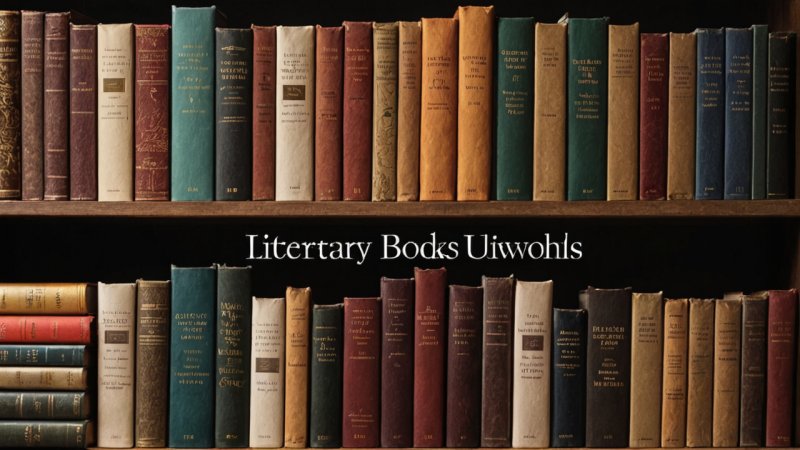Literature serves as a mirror to society, often reflecting the cultural identities that shape our world. Among the diverse genres, classic literature and contemporary fiction stand out as two significant avenues through which authors explore themes of cultural identity. While both genres provide valuable insights into the human experience, they differ in their narrative styles, thematic depth, and cultural contexts. In this article, we will delve into the characteristics of classic literature and contemporary fiction, examining their pros and cons in the exploration of cultural identity.
Defining Classic Literature
Classic literature refers to works that have stood the test of time, often regarded as foundational texts in the literary canon. These works typically explore universal themes such as love, morality, and cultural identity, often set against the backdrop of historical and social contexts. Notable examples include novels like Pride and Prejudice by Jane Austen and To Kill a Mockingbird by Harper Lee. Classic literature often employs rich language, intricate plots, and deep character development.
Defining Contemporary Fiction
Contemporary fiction encompasses works written in the late 20th and early 21st centuries, often reflecting current societal issues and trends. These narratives tend to be more accessible, using straightforward language and modern themes such as globalization, technology, and shifting cultural identities. Authors like Chimamanda Ngozi Adichie and Haruki Murakami exemplify contemporary fiction, addressing cultural identity in a globalized world.
Pros and Cons of Classic Literature
Pros
- Timeless Themes: Classic literature addresses themes that resonate across generations, offering insights into human nature and societal norms.
- Cultural Reflection: Classics often reflect the cultural identity of their time, providing a historical context that enriches our understanding of cultural evolution.
- Language and Style: The rich language and stylistic intricacies challenge readers, enhancing their literary appreciation and critical thinking.
Cons
- Accessibility: The often complex language and outdated references can alienate modern readers, making it difficult to connect with the text.
- Relevance: Some classic works may feel disconnected from contemporary issues, limiting their applicability in today’s context.
Pros and Cons of Contemporary Fiction
Pros
- Relatability: Contemporary fiction often addresses current societal issues, making it more relatable to modern readers.
- Diverse Perspectives: This genre showcases a wide range of voices and cultural identities, reflecting the multicultural nature of today’s society.
- Accessibility: The language and themes are generally more accessible, encouraging a wider audience to engage with literary works.
Cons
- Ephemeral Nature: Some contemporary works may lack the lasting impact of classics, potentially being forgotten over time.
- Over-saturation: The abundance of contemporary fiction can make it challenging for readers to discern quality narratives from less impactful ones.
Exploring Cultural Identity Through Classic Literature
Classic literature often provides a profound exploration of cultural identity by reflecting the values, struggles, and aspirations of the societies from which they emerged. Works like The Great Gatsby by F. Scott Fitzgerald examine the American Dream, revealing the complexities of identity in a rapidly changing society. Similarly, One Hundred Years of Solitude by Gabriel García Márquez delves into Latin American identity, weaving magical realism with historical context to showcase cultural heritage.
Exploring Cultural Identity Through Contemporary Fiction
Contemporary fiction, on the other hand, often captures the fluidity of cultural identity in a globalized world. Authors like Adichie challenge traditional narratives, highlighting the intersectionality of race, gender, and nationality. In Americanah, she explores the complexities of identity for a Nigerian woman navigating life in America, offering insights into the immigrant experience and the impact of globalization on cultural identity.
Differences in Narrative Style
The narrative styles of classic literature and contemporary fiction are notably different in their approach to storytelling. Classic literature often employs elaborate prose and complex character development, drawing readers into richly detailed worlds. In contrast, contemporary fiction tends to favor a more straightforward and concise style, often embracing fragmented narratives or experimental forms that reflect modern life.
Conclusion
Both classic literature and contemporary fiction offer valuable insights into the exploration of cultural identity. While classics provide a historical lens through which to view enduring themes, contemporary works reflect the dynamic and evolving nature of identity in today’s world. Readers seeking to understand cultural identity may find value in both genres, each offering unique perspectives and approaches. Ultimately, engaging with both classic and contemporary literature enriches our understanding of the human experience, fostering a deeper appreciation for the diverse narratives that shape our cultural landscape.






